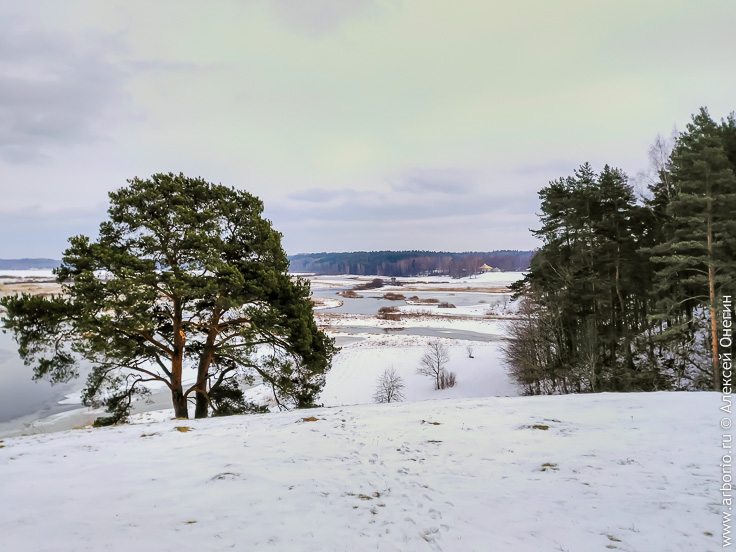When you read or watch a movie about life in imperial Russia, willy-nilly, the thought creeps in, they say, they lived well there, all these princes and counts. Yes, it is well known that 98% of the country's population by today's standards was far below the poverty line, but this only makes me want to believe more strongly that the remaining 2%, the privileged stratum, the nobility, lived much better than you and I. Balls in the Winter Palace, trains of carriages on Bolshaya Morskaya, dignified transfers to summer dachas, that's all. But did the Russian landowner really live so well? ..
Coming to the Pskov region, you see villages that are unlikely to have changed much over the past 200 years. The only difference is that in the century before last, serfs lived here, and now - almost no one. But the museum-reserve "Pushkinskie Gory", of course, is a different matter - they come here on purpose and from afar, so there are enough people here. So, when I got here, I saw how the poor landowners from those who made up the majority of the Russian nobility lived.
The most beautiful manor in the Pushkin Mountains is, of course, Petrovskoe. It was here that Abram Petrovich Gannibal, a black man of Peter the Great, lived, after whose death the estate was divided: Petrovsky went to his eldest son, and the grandfather of Alexander Sergeevich Pushkin received the Mikhailovskoye estate.
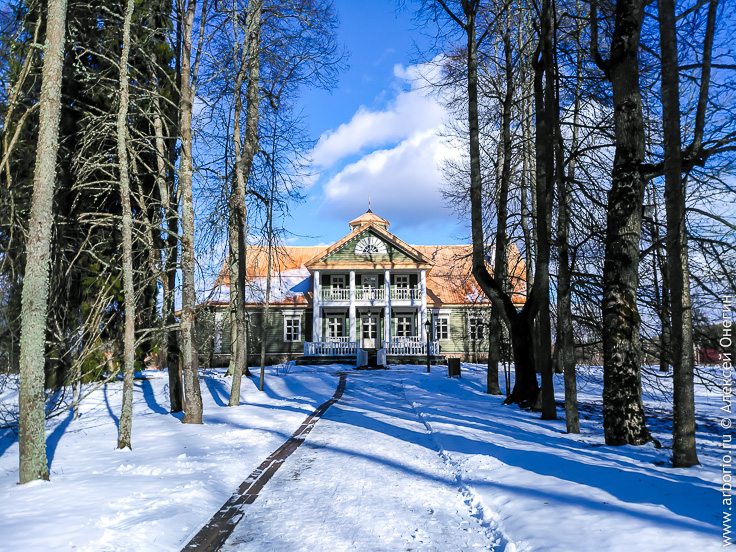
Here she is. Comparing the two houses in these photographs, you understand that they differ not so much - except that the Petrovsky colonnade makes this estate more pompous. Remove it, and you will get not the biggest house, not much different from the “estate” of a pensioner-dacha resident, who forty years ago received his six acres from the state for one hundred and first kilometer.
However, there is also a colonnade in Mikhailovsky - it just faces the lake, the descent to which, unlike Petrovsky, is steeper and equipped with stairs. Both estates are located on the shores of the same lake, so if you wish, you can see Petrovsky from Mikhailovsky, and vice versa.
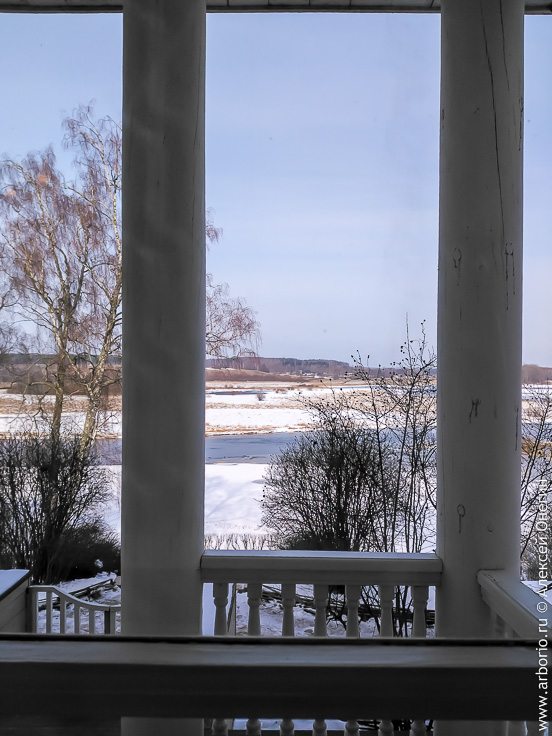
Yes, there are probably no columns near ordinary dachas, just like Dutch tiled stoves. Otherwise, the similarity is striking: a few rooms, not too large and rather sparingly furnished - that's the whole estate. Where is the ballroom, I ask you? Where is the home theater? Where is the openwork tower with a spiral staircase? There is none of this, and poor nobles never had it. The poet's office is more than modest.
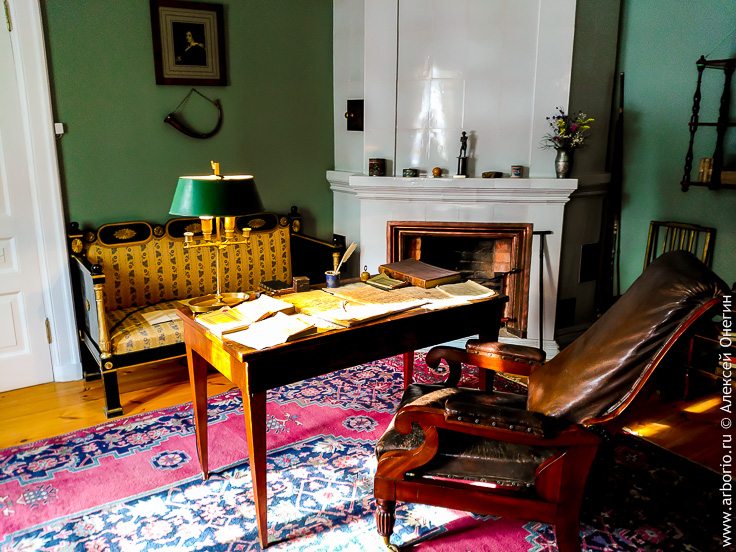
The kitchen, the bath - all this was located in separate outbuildings: the host family lived and received guests in the main house of the estate, but it was too small to accommodate everything else.
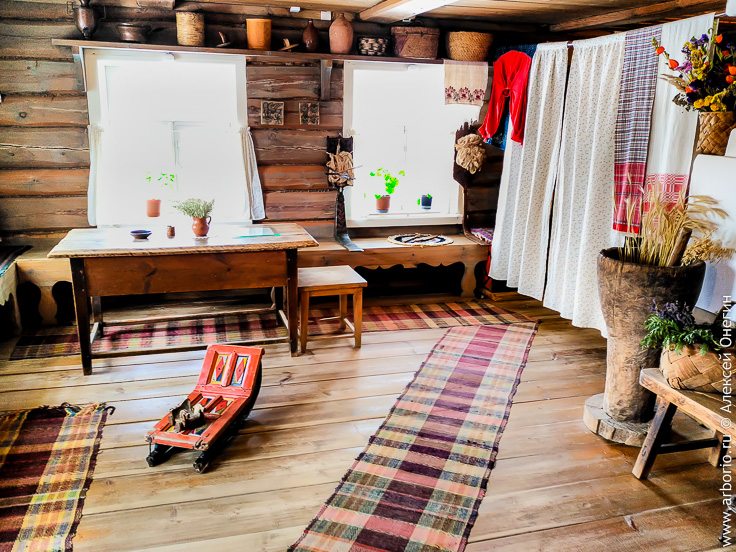
Another outbuilding is the nanny's house. By the way, this is the only building of Mikhailovsky that survived until the 20th century, and it burned down during the German occupation. The entire estate was rebuilt after the war, recreated from old illustrations and old foundations.
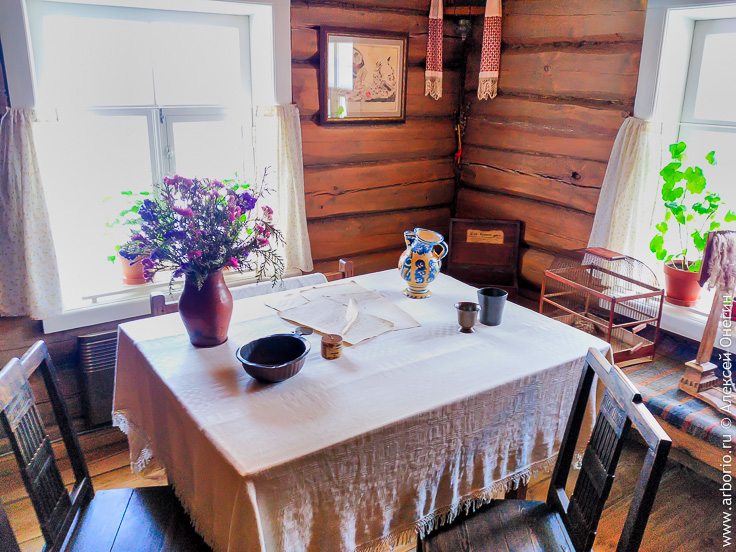
In the nanny's house, you can see a couple of gadgets of those times: a washbasin of the “snubber” model and a stick with knots, which served as a mixer for the then cooks. If you rush into the past in a time machine, you can exchange an ordinary blender for a thoroughbred Akhal-Teke horse - if, of course, you figure out how to use it without electricity. A blender, not a steed.
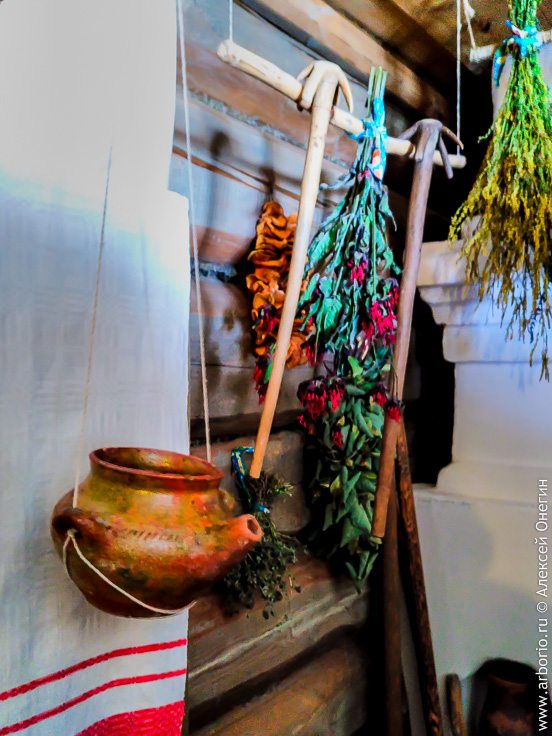
Herbs hung near the Russian stove - more for beauty. It’s not very hard to believe that the then serfs so easily dried hot peppers, that your Hungarians or Spaniards.
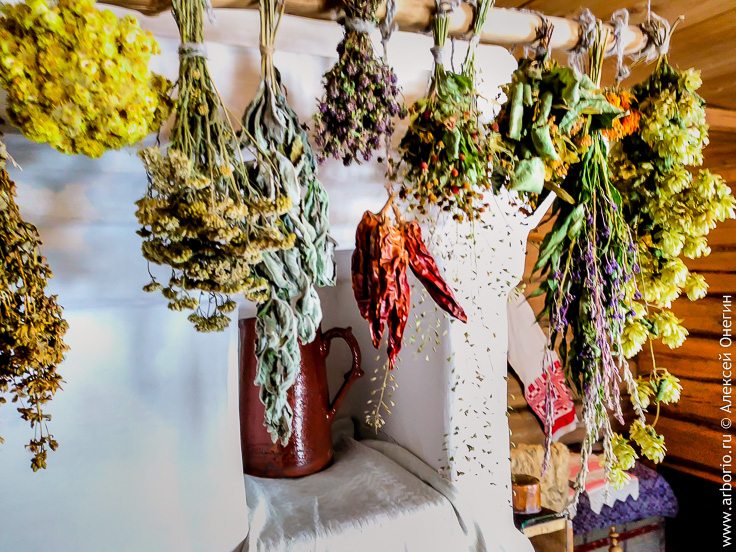
And here is one of the two red-haired bandits, the most impudent inhabitants of Mikhailovsky, who unceremoniously scurry around the estate, climbing wherever they can. According to the caretakers, they especially favor the stove in the nanny's house - in front of my eyes the cat got there faster than they managed to close the door. That's who really does not complain about life.
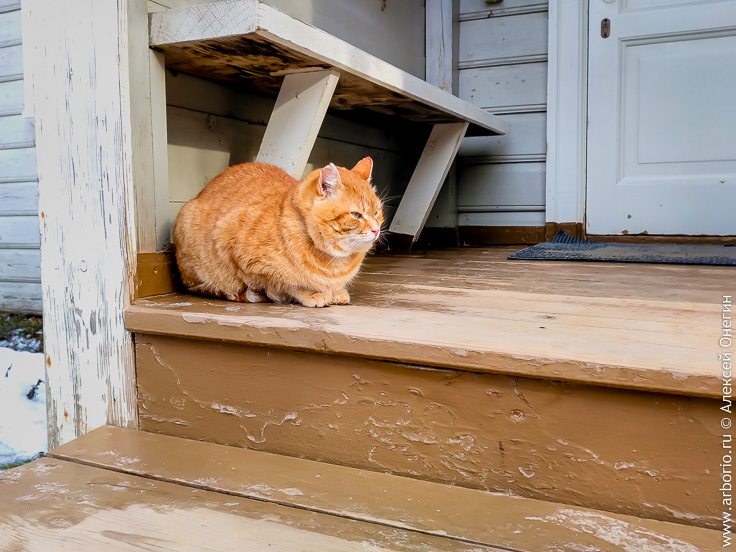
Another house on the outskirts of the estate with a particularly nice roof. In addition, there are also alleys and open spaces, but, as we see, Russian landowners could not boast of living conditions. Here, it’s not even so much a shame for our everything, but overwhelmed by the joy of the fact that today we have access to the simplest amenities that people could not even dream of a few generations ago.
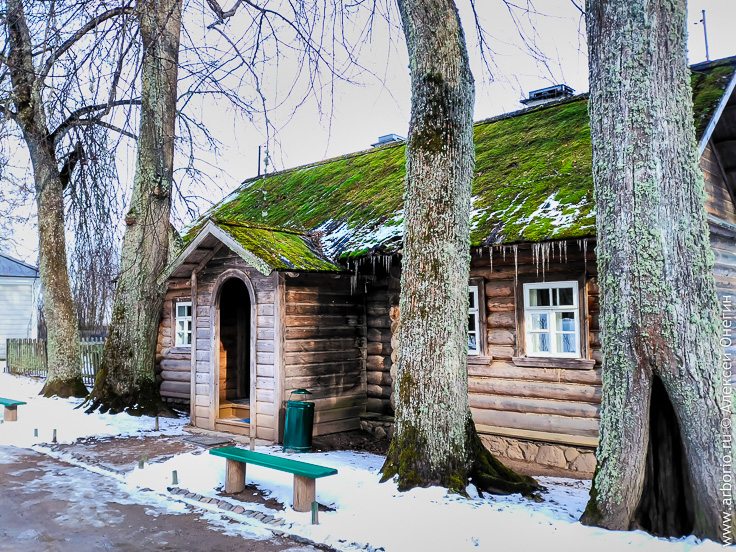
Yes, the views here, of course, are amazing, and in summer everything is probably even more beautiful. The poet, however, languished in Mikhailovsky, and when he lived here during his exile, he tried to escape several times. Can he be blamed for this?
